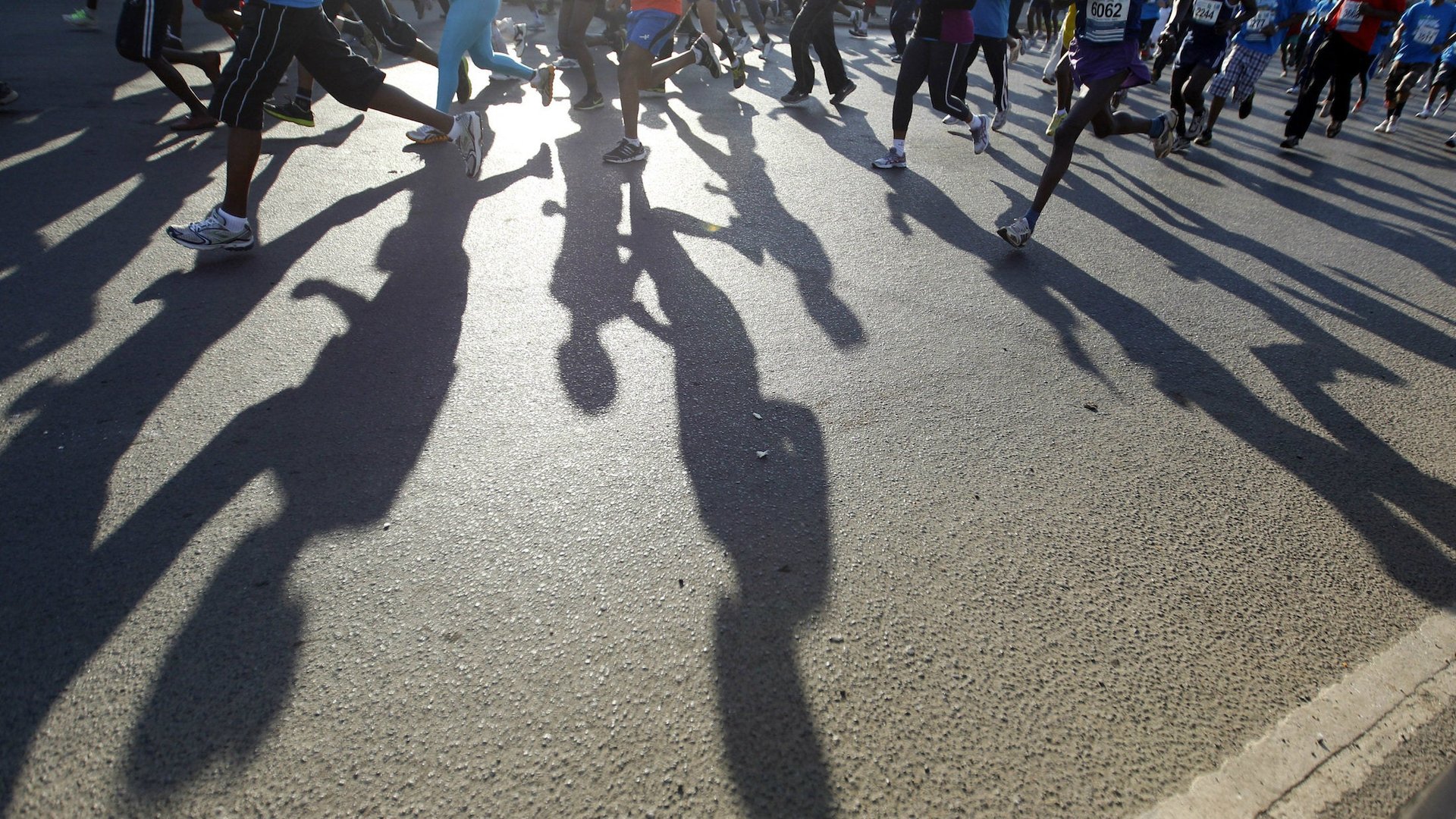A Kenyan runner tried to win the Nairobi Marathon by only running the last kilometer
When 28-year-old Julius Njogu jogged easily through the finish line of the Nairobi Standard Chartered Marathon this weekend, to win second place, officials were immediately suspicious of his lack of fatigue. A member of the press corps shouted from the sidelines, “I don’t think he has run.” He was shown arguing with race officials and taking off his shoes, presumably to show blisters as proof.


When 28-year-old Julius Njogu jogged easily through the finish line of the Nairobi Standard Chartered Marathon this weekend, to win second place, officials were immediately suspicious of his lack of fatigue. A member of the press corps shouted from the sidelines, “I don’t think he has run.” He was shown arguing with race officials and taking off his shoes, presumably to show blisters as proof.
He was soon disqualified and detained by police. Organizers believe Njogu was waiting in the crowd and joined the race with just 1 kilometer left of the race. Njogu claimed that he was running in a group and broke out ahead at the 38-kilometer mark of the 42-kilometer race. As proof of his athletic prowess, he said he had finished fourth in a marathon in Lewa in June.
Aside from not winning the prize money of about $7,000, Njogu is now facing fraud charges.
Kenyans are angry with Njogu for disgracing a national sport—Kenya is famous for producing some of the world’s best long-distance runners. But for others, his apparent deception is just another example of the corruption common to daily life in Kenya.
This year’s winners of the Nairobi race, now that Njogu is out of the picture, were Joshua Kipkorir in first and Shadrack Kiptoo in second, at 2:13:25 and 2:13:56, respectively. Elizabeth Rumokoi won the women’s race, with a time of 2:29:32.